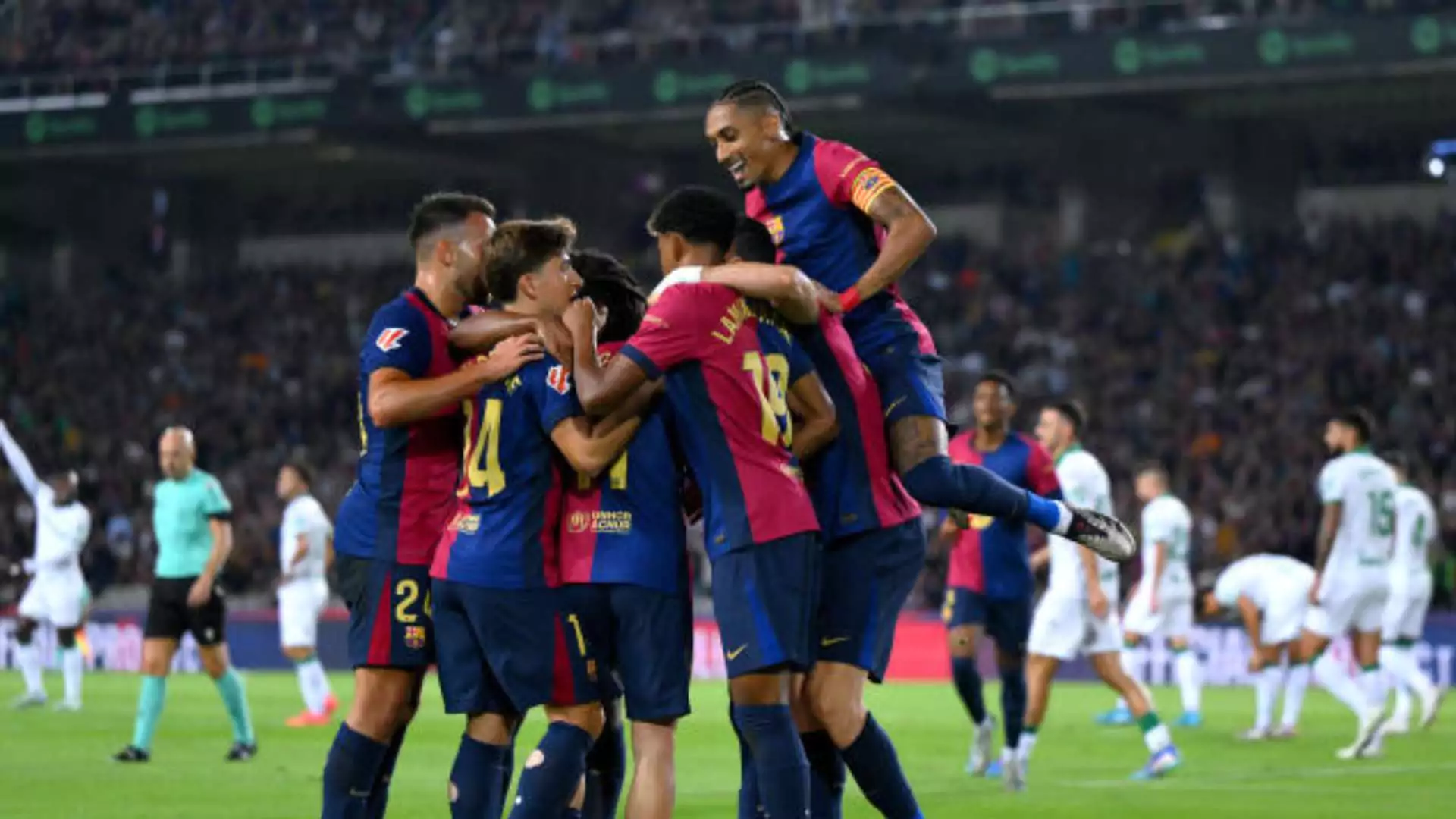As November arrives, the expectations surrounding FC Barcelona have notably increased compared to the beginning of the season in August. This shift in perspective means that the recent victory over Espanyol should be greeted with constructive criticism rather than blind celebration. It’s anticipated that Hansi Flick, the team’s manager, will make his feelings known about the performance, as he has high standards for his squad.
First Half Brilliance
The first half of the match against Espanyol was a testament to Flick’s tactical vision for the team. Barcelona played with a high-intensity counter-pressing style, combined with relentless forward attacks that resulted in three impressive goals before halftime. The defensive strategy also shone through; the team employed a high line that Espanyol struggled to breach despite their attempts. This formula has become familiar to the Barcelona players, who are increasingly refining their dominance with each game. At moments, the performance resembled a masterclass in “joga bonito,” showcasing the skill and flair that the club is known for.
Disappointing Second Half
However, the second half told a different story. The starting XI came out with noticeably less energy, which was concerning given the high standards set earlier in the match. Flick had a clear plan: to secure the win quickly against Espanyol before substituting in fresh legs to assess their readiness for the rigors of the season. Unfortunately, when Frenkie de Jong and Fermin Lopez entered the pitch, the team’s momentum shifted dramatically. While the defense initially executed their offside trap effectively, it became apparent that it was only a matter of time before Espanyol found a way through.
Body Language and Impact
A notable moment occurred when cameras captured Frenkie on the bench, looking disengaged and seemingly frustrated about his role. While it may be speculative to analyze body language, it often reveals deeper issues within a team. Upon entering the game, there was a marked drop in the intensity that Flick had worked so hard to instill. This raises questions about commitment and readiness from the bench players, especially those like Frenkie, who are expected to lead by example.
A Lesson from Marc Casado
For Frenkie, a valuable lesson can be drawn from Marc Casado, who has demonstrated relentless effort in every opportunity since Marc Bernal’s injury. Casado’s tenacity contrasts sharply with the performance of other players who may not exhibit the same level of fight. Even Pedri, known for his more subdued approach, has shown a willingness to step up his game when needed. This emphasizes the program’s expectations: players must either adapt to this high-intensity model or face the possibility of being sidelined when the transfer window opens in January.
Defensive Pressure and Team Dynamics
Barcelona could have easily dropped points in this match if not for their effective offside trap, which has been a cornerstone of their defensive strategy. However, playing with a high defensive line means that the pressure should not solely rest on center-backs Pau Cubarsí and Iñigo Martínez. Instead, the responsibility starts with the forwards and midfielders, who must work tirelessly to prevent the opposition from making any forward progress. It is crucial that the entire team shares the workload, ensuring that the defenders are not left sprinting back constantly to cover for lapses elsewhere on the pitch.
Mixed Emotions After Victory
While it’s challenging not to celebrate the win, the second half of the game left many fans and analysts with mixed emotions. Players like Dani Olmo, Lamine Yamal, and Raphinha were exceptional in the first half, showcasing their attacking prowess and creating a dynamic offensive presence. However, in the second half, Lamine attempted some overly ambitious nutmegs that came across as unnecessary given the match’s context. This kind of play can be seen as a departure from the cohesive team strategy that Flick has been instilling.
A Call for Consistency
Dani Olmo’s remarks in his post-match interview underscored the need for consistency, stating that this game should serve as a learning experience. The overarching goal for Barcelona is to achieve greatness, which inherently requires steady performances. The stark contrast between the dominant first half and the lackluster second half illustrated that this team possesses the potential to compete for multiple trophies, yet they also risk falling short if they do not maintain their focus and intensity.
Choosing the Path Forward
The crucial question now is: which identity will Barcelona choose to embrace moving forward? It is essential for Flick to identify the players who are genuinely committed to the hard work and discipline that success demands. The path to greatness lies in consistent performance and teamwork, and the team must align their efforts accordingly. As they prepare for upcoming fixtures, Barcelona must reflect on their performance against Espanyol, using it as a foundation for growth and improvement. Only through hard work, commitment, and the willingness to learn can they aspire to achieve the lofty goals that their fans and history demand.





